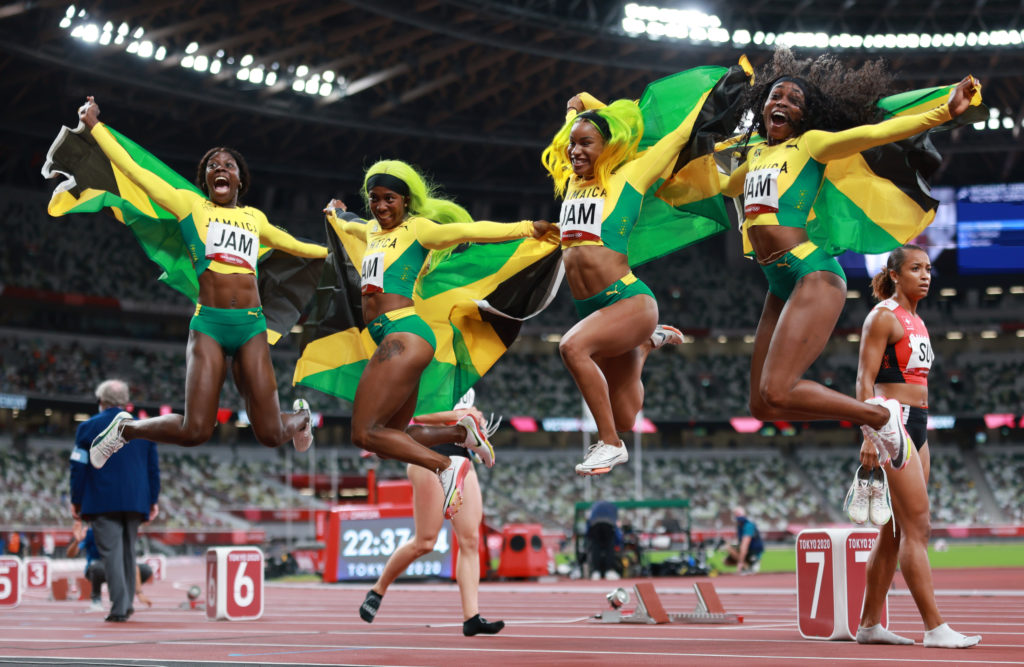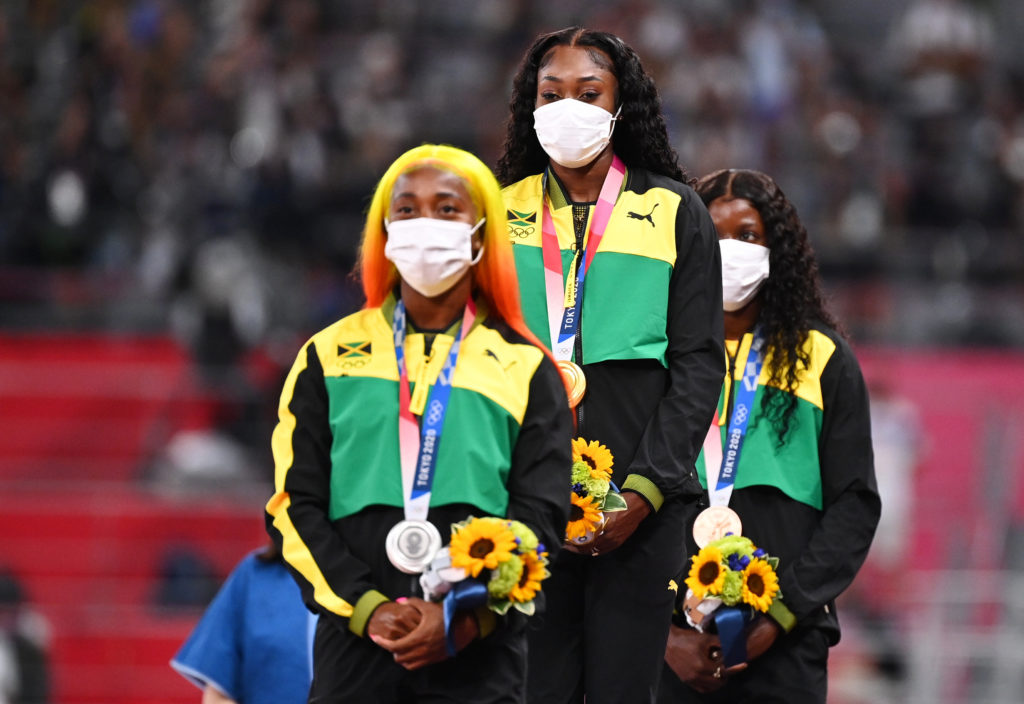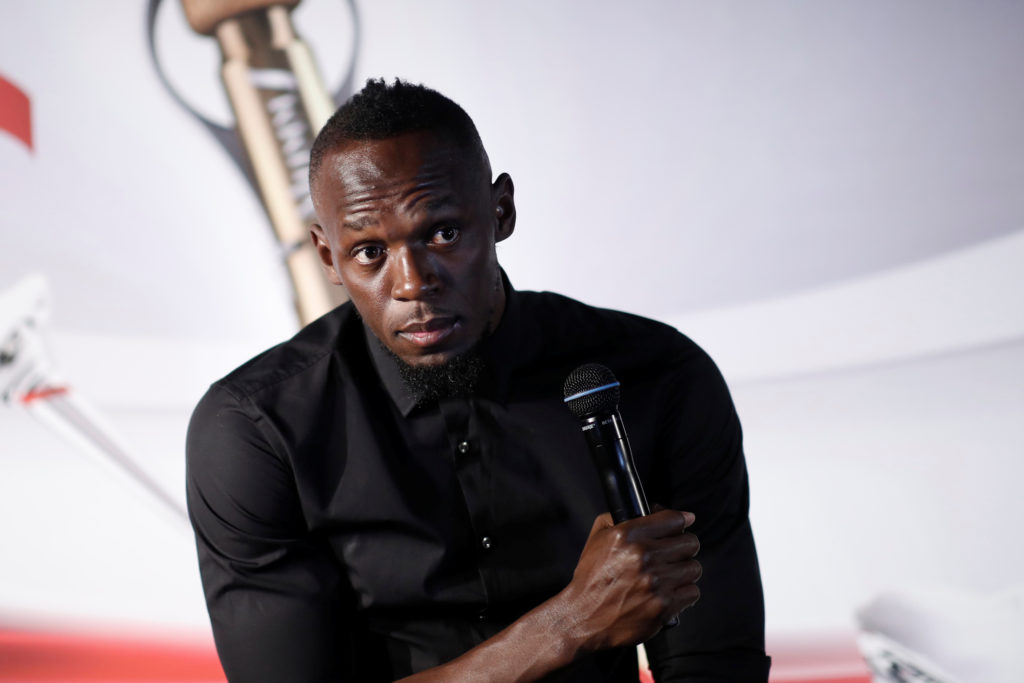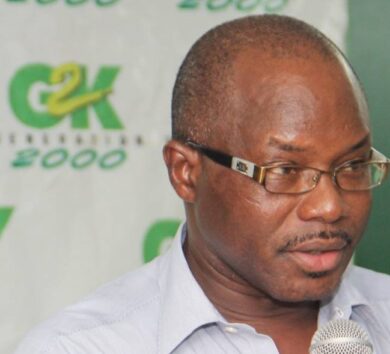

Jamaican athletes returning from the Tokyo Olympic Games made the country proud with the women sprinters putting in sensational performances.
On returning home, they have been commended and celebrated and those who won medals are brought before the cameras with smiling government officials and business leaders patting them on the head for representing their country so well.
Then it’s back to the reality of finding funding and necessary resources to prepare for the next major games and inevitably their pleas for help go unheeded.

A lot of commentary has surrounded Usain Bolt’s denouncement of corporate Jamaica for not coming to athletes’ aid when they need it, but, when they win, they are all over them. That observation has a particular relevance coming from the greatest sprinter the world has ever seen, a man acknowledged as a superstar of the track who hails from Jamaica.
Bolt tweeted: “A lot of athletes sought support from corporate Jamaica in their preparation leading up and heading to Olympic Games and got NO HELP.
“Athletes know your Worth/Power now that they all want to jump onto your Brand/Image for free.”
There are those in corporate Jamaica who saw this as a stinging rebuke and are upset that it came from one of the country’s most accomplished sons.
But it underscores a more fundamental point – Jamaica must invest in its own people. Identify them, give them the support and nurture their growth.
It is often said that Jamaica produces the best track stars and that its athletes are phenomenal. Well, how do you make that so year in year out? You can’t do so if you are not committed to investing to ensure greatness is perpetuated.

What is the good in having a cavalcade and getting the bunting out once they have returned home triumphant and then you ignore them for the next four years?
Jamaica could never produce a Steve Jobs, a Mark Zuckerberg, a Stephen Spielberg, Coco Chanel or Mary W. Jackson.
Starting out, if they had knocked on any Jamaican finance house’s or big corporate entity’s door with an idea or plan, they would not get a look in. Chances are they would be dismissed summarily.
Getting behind true talent, cultivating genius, investing in sublime precociousness is lacking in Jamaica. Support is more likely to be given to building an apartment block or putting up a BPO centre or running a cook shop.
It is so often said that Bob Marley is a true Jamaican icon and a gift to the world. Everybody knows Bob Marley. But why is that?
Chris Blackwell saw his talent, promoted it and invested in the “Dred with the guitar”. The world acknowledged him first.
Tessanne and Tami Chin should be international popstars today. How their careers never flourished with no one in Jamaica really believing in them and getting behind them is a travesty. Is Britney Spears better than the Chin sisters? Is Rita Ora more talented? Is Miley Cyrus a better singer? Is Cardi B more vocally gifted? Is Nicole Scherzinger a better performer?
It is said that you need international management to make it, but why? Elvis Presley didn’t announce himself to the world this way, neither did Aretha Franklin or Stevie Wonder. The Rolling Stones didn’t. The Beatles didn’t.
They were home grown talents, whose exceptionalism was recognised. They created excitement across the world, beginning from their country.
We have all met them, those who promise the world but can’t even give you Kingston.

Jamaican athletic ability cannot be taken for granted. It is a national resource that needs investment. Who is the next Usain Bolt and is his country prepared to get behind him or simply clap and cheer for him on TV when he finds the resolve to win?
Who comes after Shelly-Ann Fraser-Pryce and Elaine Thompson-Herah? Is corporate Jamaica willing to put up the investment in a world-class athletics academy or will successive generations have to make do running around the grounds of UWI?
Nick Bollettieri now in his 90s, pioneered the concept of a tennis boarding school. Back in the ’70s he set up his academy and since then some of his students have gone on to become superstars of the sport.
Andre Agassi, Pete Sampras, Boris Becker, Monica Seles, Maria Sharopova, The Williams sisters, Jim Courier, Martina Hingis have all trained there and benefited from Bollettieri’s experience and the methods of the academy.
Speaking about how he got started, Bollettieri said: “I thought very hard about my time in the paratroopers and putting people together who wanted to achieve, so I thought if we could put boys and girls together that had this type of discipline and give everything they have, it might work.
“My role is very simple – there’s a ball, just hit it and go for it baby! We try to get a person a little better each and every day.”
Given the raw track and field talent to be found here, couldn’t corporate Jamaica come together to fund an academy like Bolletteri’s and get someone like Bruce James to run and manage it?
How difficult is it to instill these ideas and inculcate the Bollettieri mindset into young track and field performers in Jamaica? How to live right, speak with the media, prepare, train, invest your money, give back to the sport, to the country for that matter.

Shaggy has made the point that people outside Jamaica that have an interest in reggae music make more money and get more recognition that Jamaican purveyors. He has also called for greater professionalism and more protection of local reggae music.
You have to invest in Jamaicans and see their intrinsic value. Then they in turn must have the ability to sell their wares both at home and abroad.
The German reggae artist Gentleman is a case study.
According to Caribbean culture and arts website, Repeating Islands: “In 1998, German sing-jay Gentleman flew to Kingston, Jamaica to further his career in reggae. Seeking recording opportunities, Gentleman called several Kingston-based producers via contact information gleaned from the island’s Yellow Pages, but only one expressed interest in working with the Cologne-based artist: Richie Stephens.”
Twelve albums later, refining and getting better at his craft, Gentleman is a big reggae artiste, particularly in Europe, with a net worth of about US$20 million.
VALUABLE INSIGHT
Today many Jamaicans bemoan that they don’t make enough money from reggae music and that reggae artistes outside of Jamaica are far more successful and wealthier. Some even cite cultural appropriation.
Well, if you don’t value what you have, others will see it and optimise on it.
On a radio show in the US, Shaggy gave some valuable insight that we can all learn from and apply. He said: “Some people have sight, I have vision. You have to be able to see, that’s why I’m never in a box. I started this game as a hybrid, and I do hybrid reggae. I have been criticised by the purists but so has Bob Marley.”
Ten years ago, Neil Robertson then head of Touring and Live Events at reggae label VP Records said: “There’s a new generation of reggae artistes with two things in common: They’re net from the birthplace of reggae music, and they are enormously successful.
“In Europe at festivals they’re playing to 30-40,000 people, club gigs 1-4,000 people a night. There’s hardly anybody out of Jamaica who can draw that kind of a crowd.”

Dancehall DJ Demarco, speaking with NPR, touched on the issue of Jamaicans not getting their due from the craft. It really does come from investing in time, study, evaluating competitors, management, craftsmanship, collaborations, wider markets, engaging with the media. Investing in your brand. Getting opportunities.
Demarco said: “What I want to see are the reggae artists in Jamaica make the same amount of money like an American who would take up our music and sell millions. We can’t sell millions? I don’t understand that. We are probably doing something wrong.”
Yes, we are doing something wrong Demarco. Yes, we are.
It is perhaps put best by the Olympic Gold 100m hurdle winner, Jamaica’s Hansle Parchment, who had to rely on the largesse of a Tokyo 2020 volunteer to pay for his taxi to the Olympic Stadium.
But that’s another story.
“The support that everyone is giving me now I would like to see that for the other athletes as well. It is tough to go out after months of preparation and not get the result you wanted, so it would be good for us as a nation to give the support to everybody and build that team spirit so that next time they will know that the support is strong and real.”
Indeed, Hansle.







Comments